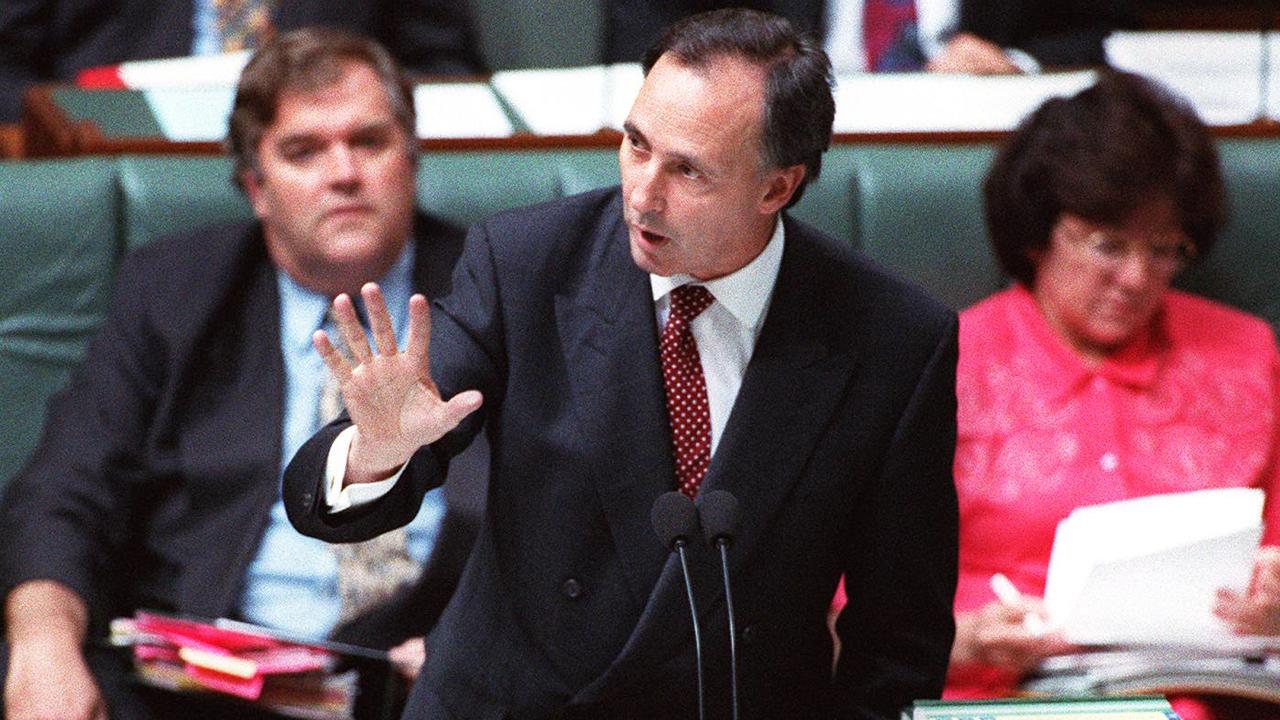Cross River Rail budget blows out to $17bn, no trains until 2029
Labor has lashed out at the state government claiming it is “cooking the books” after a revelation the Cross River Rail would cost more than $17bn and not be operational until 2029.
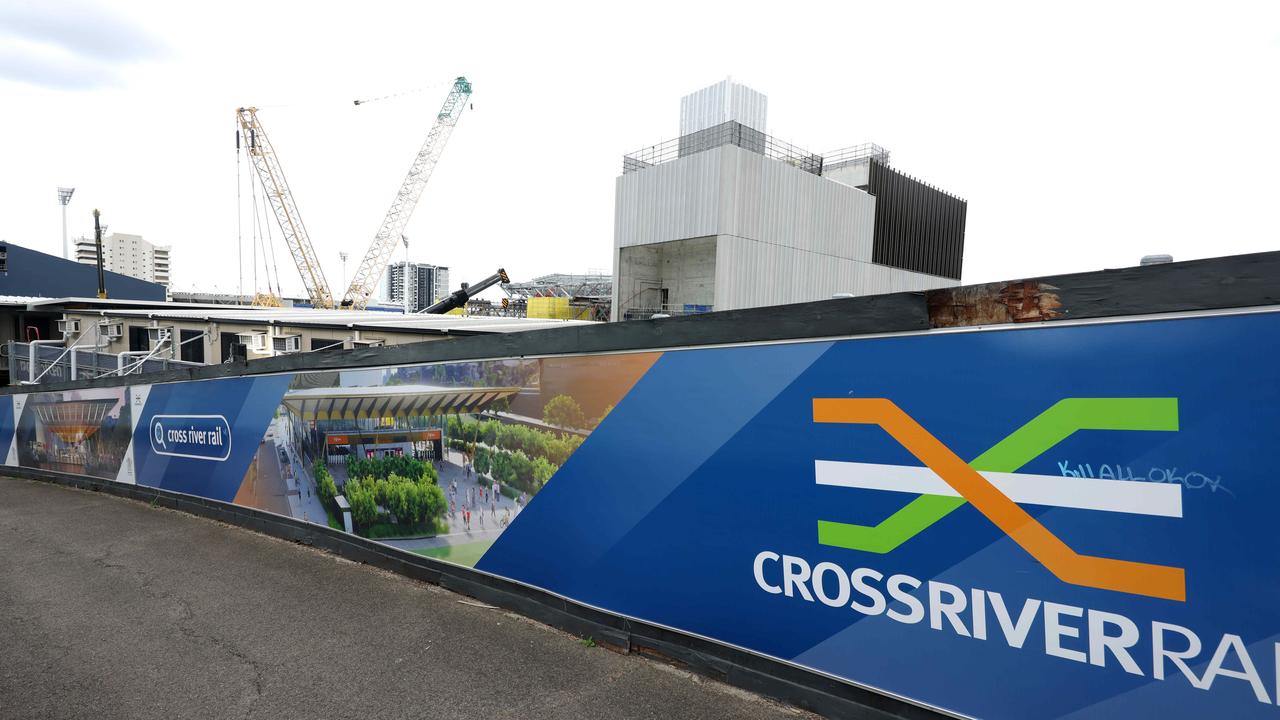
QLD Votes
Don't miss out on the headlines from QLD Votes. Followed categories will be added to My News.
Cross River Rail won’t be operational until 2029 and cost more than $17bn in a stunning revelation the government has labelled Labor’s most deceitful act.
The wild cost blowout has been disputed by Labor, however, which argues Transport Minister Brent Mickelberg is “cooking the books” by including ongoing maintenance and the cost of buses to make the project’s construction bill appear significantly higher.
Mr Mickelberg also revealed the former government’s claim passenger trains would be operating by 2026 was untrue.
He said the tunnel must undertake an independent certification by the National Rail Safety Regulator that takes “at least two years to complete”.
Mr Mickelberg also declared the original price of $5.4bn had blown out by more than three times to $17bn.
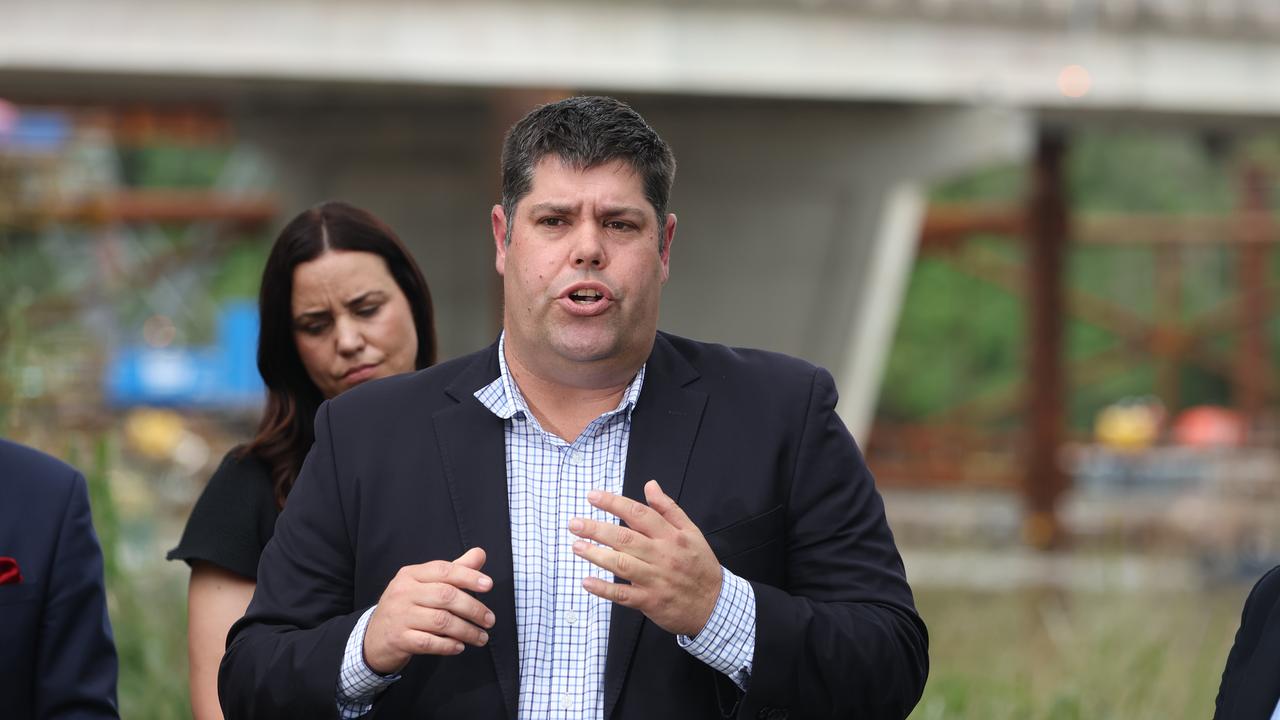
However, Labor’s transport spokesman Bart Mellish said the government had included the cost of maintaining the network.
“Brett Mickelberg is cooking the books, ruining the budget and costing Queenslanders a fortune,” he said.
“The Minister for Transport has lost all credibility by trying to use 25 years of maintenance costs to inflate the project costs of the Cross River Rail.
“Adding the cost of buses to be used across the whole of South East Queensland to the project is also laughable.
“He has also dissolved any bargaining power the government had in negotiating costs going forward, potentially costing Queenslanders billions of dollars.”
Shadow Treasurer Shannon Fentiman has labelled Mr Mickelberg a “boofhead” and attacked Premier David Crisafulli for claiming Cross River Rail would cost $17bn.
Ms Fentiman said Mr Mickelberg included the cost of upgrades to train stations on the Gold Coast, new buses for South East Queensland and train signalling into the total cost of the project.
“It is ridiculous … No one does accounting the way David Crisafulli is doing accounting for the cost of these projects,” she said.
“Queensland Treasury sure as hell doesn’t.
“I wonder if the builder who’s doing the renovation on David Crisafulli’s Bulimba home was also charging him for 40 years of maintenance.”
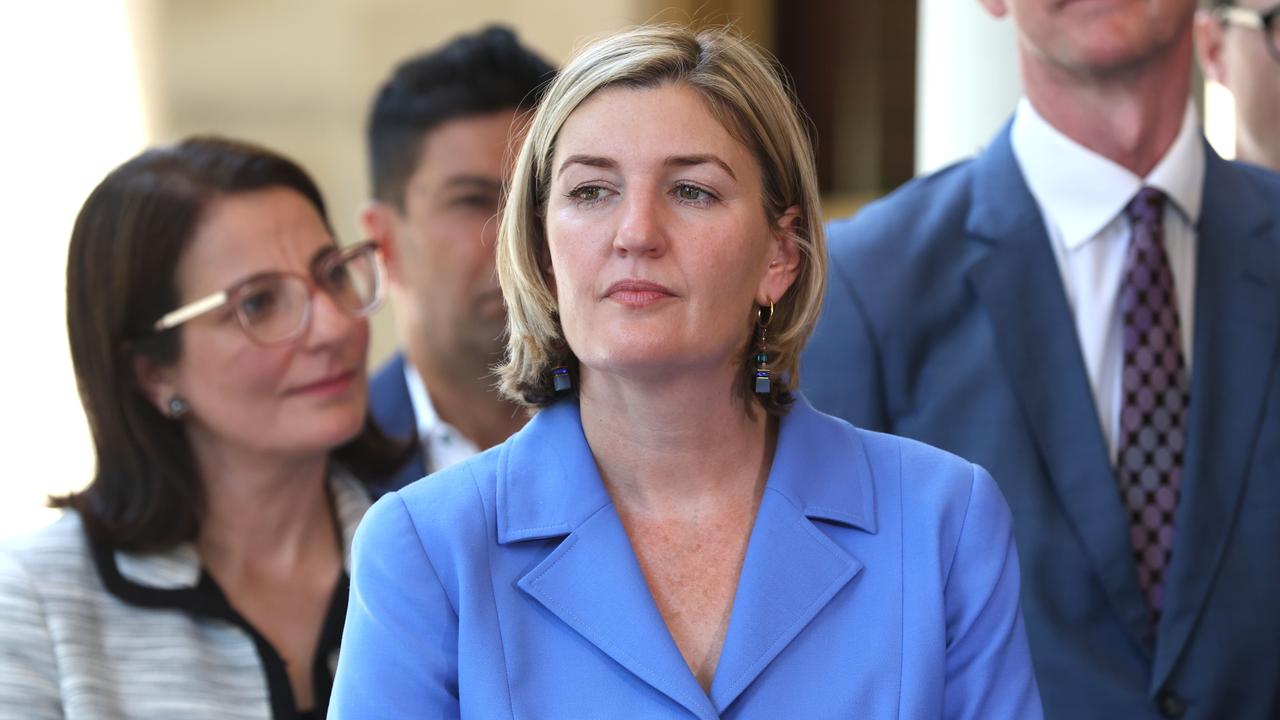
Mr Mickelburg dug in his heels on Wednesday about the maintenance claims, insisting it was standard procedure to include maintenance in contract prices.
But he refused to reveal how much of the $10.5 billion “blowout’’ in the project was due to maintenance, citing legal advice.
He also would not say how the government would pay for the blowout, such as expanding public private partnerships, but said some elements were presently funded.
And he committed to delivering the project, saying if that were not well before the 2032 Olympics he would no longer be the minister.
“What it costs to design, what it costs to build, what it costs to maintain - they are all essential elements,’’ he said.
“I’m not going to split it (maintenance costs) out into individual elements because, in doing so, it will enable contractors to be able to work back and work out a number.’’
He said Infrastructure Australia’s assessment of the business case in 2017 identified that costs were likely understated and benefits overstated.
“They indicated that they had considerable concerns in relation to the project _ basically they said the work hadn’t been done to the required level to be able to invest taxpayers’ money,’’ he said.
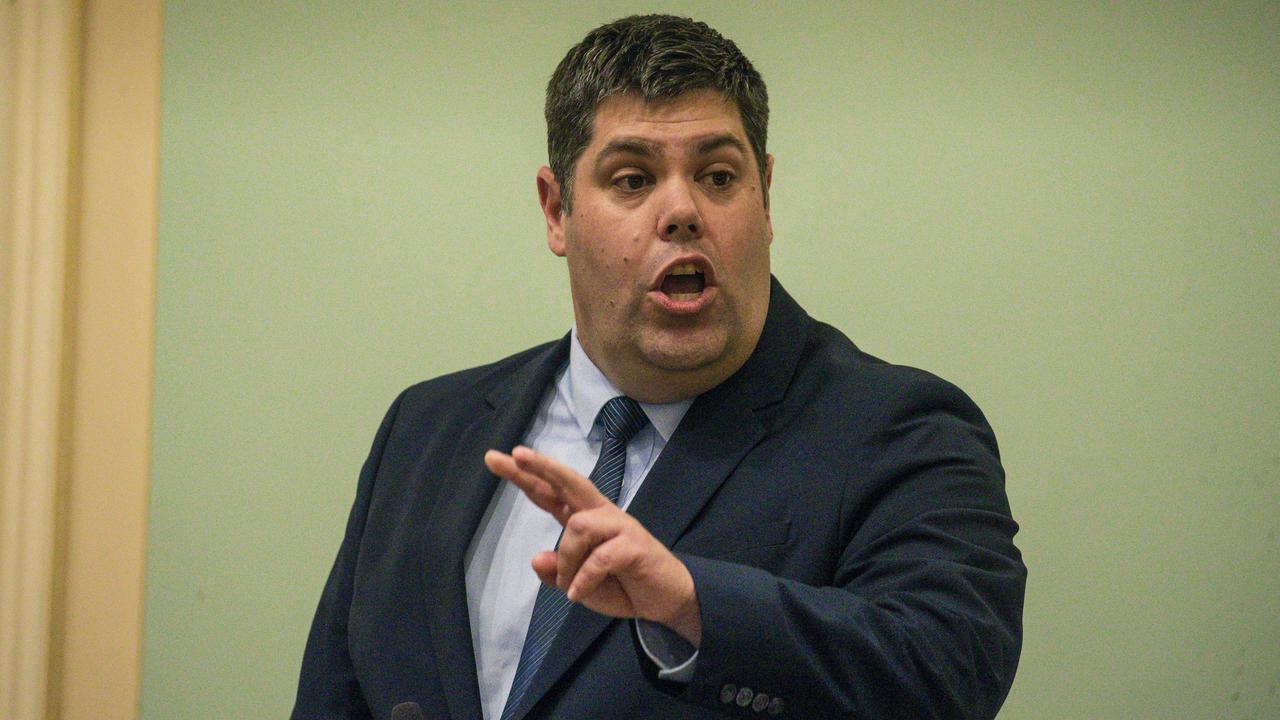
Mr Mickelburg also doubled down on his claims that the opening date would not be until 2029, three years after the most recent estimate.
He said none of the electrical work, including fire and signalling systems, had been installed and construction of the first of 75 trains was already delayed.
Testing would take two years, he claimed, pointing to the one year taken for Sydney’s Metro.
“I’ve met with the national regulator. They made it very clear that this process is up to, if not more than, a two-year-process,’’ he said.
“It will be a construction site for an extended period of time.
“The next step will be to run trains through the tunnels safely, then we’ll put workers and passengers on the trains to demonstrate that that can be done.
“And then eventually we will be fully timetabling and opening it up to full services.
“The briefing I’ve received is that is unlikely to happen until 2029.’’
Labor’s transport spokesman Bart Mellish denied Cross River Rail would be delayed by three years and noted, as of July, it was on track to open in 2026.
“(Mr Mickelberg) really needs to fess up and say where this 2029 figure came from,” Mr Mellish said.
Mr Mickelberg blamed more than 140 days of lost productivity on Labor’s Best Practice Industry Conditions policy for causing delays, however the policy is not applied to Cross River Rail.
“The deceit is hard to swallow,” Mr Mickelberg said.
“They’d been fudging the numbers for years and selling a story to Queenslanders that was simply untrue.”
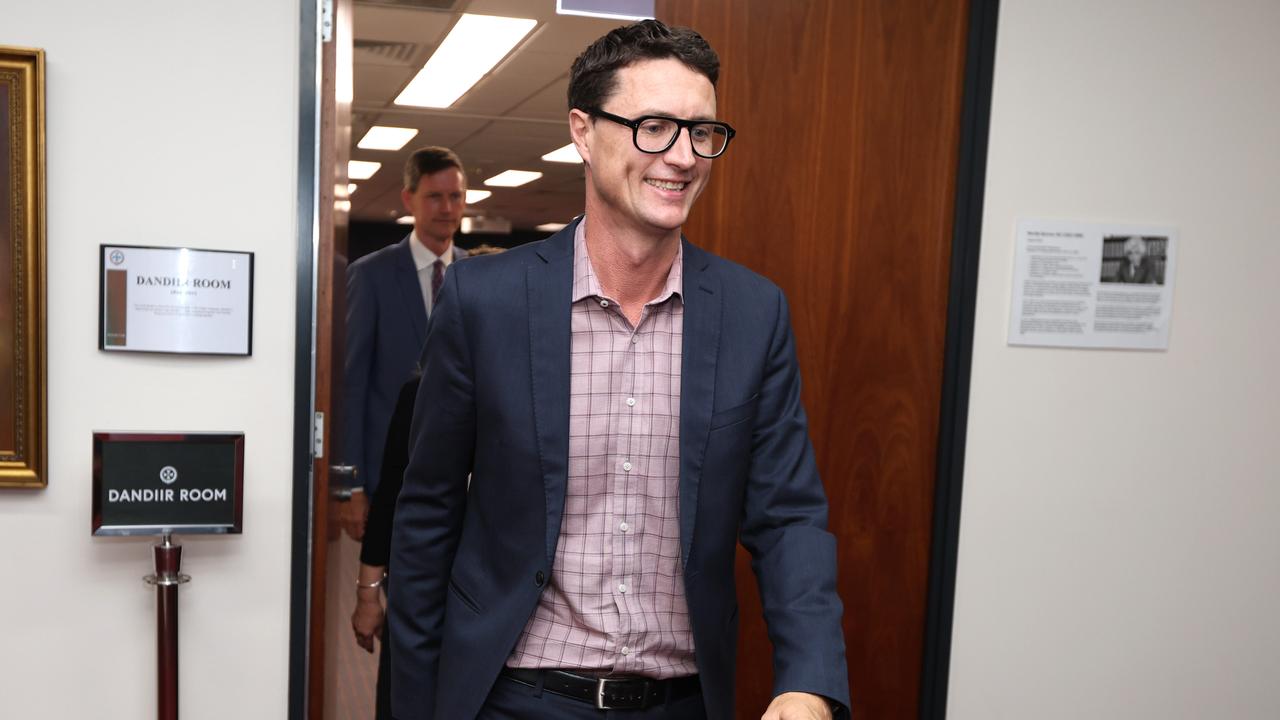
“$17bn is a mind-blowing figure, and one that taxpayers should have been told.
“Imagine what that kind of money could have bought Queenslanders. Imagine the hospitals, schools, houses, and roads it could build.
“The former Transport Minister has been telling Queenslanders up until a few months ago that Cross River Rail passenger trains will be operating in 2026, when that was never going to be the case.”
University of Queensland professor of transport engineering, Mark Hickman, said if construction was delayed that would affect choke points in the road network including at the Inner City Bypass.
If an Olympics precinct were built at Victoria Park, construction delays would add to delays from CRR works.
Griffith University’s Cities Research Institute deputy director, Professor Matt Burke, said CRR would save 8-10 minutes travel time for people coming into the CBD from suburbs such as Algester and also from the Gold Coast.
“Tertiary students, who make up one in six train travellers, will also benefit going to the University of Queensland or to QUT,’’ he said.
He said pushing back the CRR opening would also delay improvements to the Beenleigh and Cleveland lines.



